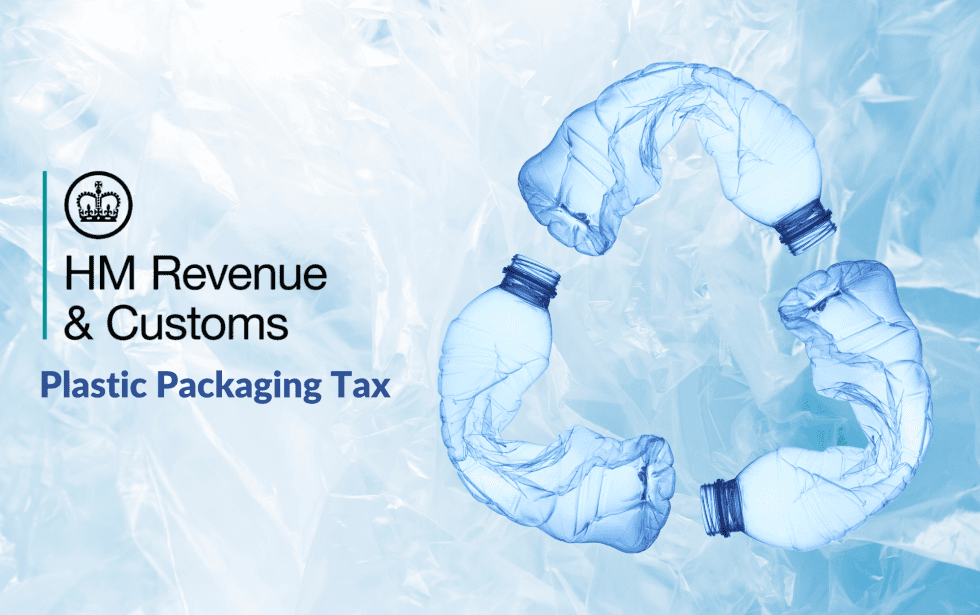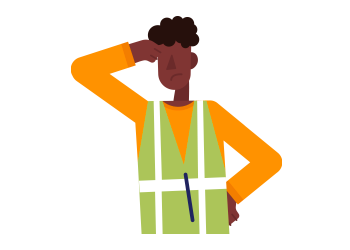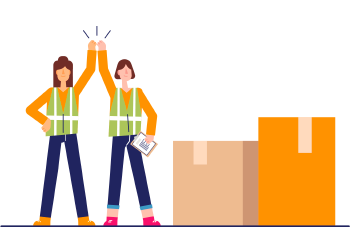Plastic Packaging Tax: What it means for you
- Published:
Reading Time: 7 minutes
Share this article
On February 17, 2022 by Josh Arrowsmith
Explore more: Experiences & Industry Insights | Case Studies | Testimonials
With the introduction of the Plastic Packaging Tax (PPT) less than three months away, we round up what it means for organisations that are distributing goods in the UK.


Plastic pollution is a issue that the UK government is continuing to look to tackle. Previously introduced steps such as paying for carrier bags in supermarkets have had some impact and now a new measure is the introduction, in April 2022, of the Plastic Packaging Tax.
This new tax will impact those who are making or importing more than 10 tonnes of plastic packaging containing less than 30% recycled plastic when measured by weight. It will also impact those who are importing packaged goods into the UK. The tax will be £200 per tonne.
Jump to a different section:

The Plastic Packaging Tax will not be levied at those who are buying plastic packaging from a UK manufacturer for use in the UK. This means that the majority of our ecommerce, contract packing or fulfilment clients will not be impacted directly.
But that doesn’t mean this new tax is something to be ignored.
Potentially there will be increases to the costs of packaging plastic as manufacturers and importers have to change their processes to include more recycled plastics. Additionally, there may be due diligence requirements to ensure that your supply chain is taking the necessary steps to avoid fines, and potential reputational impacts.
It is also a reminder to us all to consider the impact plastic has on the environment, and to take steps to minimise that impact where possible.
Jump to a different section:

At the moment, all our clients supply their own packaging materials for us to use. That doesn’t mean that we aren’t often asked about alternative products or solutions to problems that arise however.
We have been in discussions with a producer in Norway that is looking at alternatives to plastic packaging which offer robust protection to the items, but without the impact. We have also directed clients to more sustainable options include cardboard sleeves to replace plastic wrapping for magazines.
With a broad client base, and a high distribution volume every week, we can share learnings about how different packaging options perform, and the impact on price per item that changing can have.
Jump to a different section:

An important consideration in reducing our plastic consumption is to reduce our wastage in the first place.
In a fulfilment house, wastage can occur in many ways and we are constantly working to minimise this. One of our strengths is our consistent and experienced workforce and this has a positive impact on wastage as well as other areas.
Casual labour might rush and use less consideration when putting an item in a wrapper. Our staff know that the details matter. With their experience, they are well placed to judge the potential vulnerabilities of a packaging material and adjust their method accordingly. This prevents breakage, and therefore reduces wastage.
We collect all our used cardboard and ensure it is recycled, and take steps to find sustainable solutions wherever possible. And, due to our relationships with associations like BCMPA (The Association for Contract Manufacturing, Packing, Fulfilment and Logistics) and UKWA (United Kingdom Warehousing Association), we can ensure we work to best practice guidelines and keep our knowledge up to date.
With quality control at its heart, ISO 14001 is a goal that we are working towards and which is ensuring that we continue to offer the best service. One step that we take, which supports both quality control as well as building customer confidence, is to make a video of the fulfilment of an order and send that to our client so they can see that we’ve fully understood the requirement and are adhering to their specific needs.
We also have an advisory role and work to support clients wherever possible. We were able to help one client, faced with the prospect of destroying items as a result of a customer relationship ending, by providing alternative and affordable storage solutions while they found an alternative route to market. This prevented volumes of product from going directly to landfill.
Jump to a different section:

If you think you might be subject to the Plastic Packaging Tax, you can read more detail on the Government website, but the first actions you need to take is to:
Jump to a different section:
In this industry, knowledge really is power, especially if your business’ industry or sector revolves around government regulation and policy, to which can be subject to change at any time. The sole purpose of this article is to help shine a light on any grey areas within government legislation concerning environmentally impactful materials that can often be easily overlooked.
If there are any topical areas that have been spoken about or resonate within this article that you would like us to assist you and your business with, our 30+ years experience in fulfilment since 1987 could make us a perfect fit for your next project in ecommerce fulfilment, returns management, contract packing or warehouse management.
Please get in touch with us, send a live chat message, or call +44 (0)1268 498 950
Send us your direct enquiry via email:
Was this article helpful? Share with your network below

Head of Commercial & Innovation